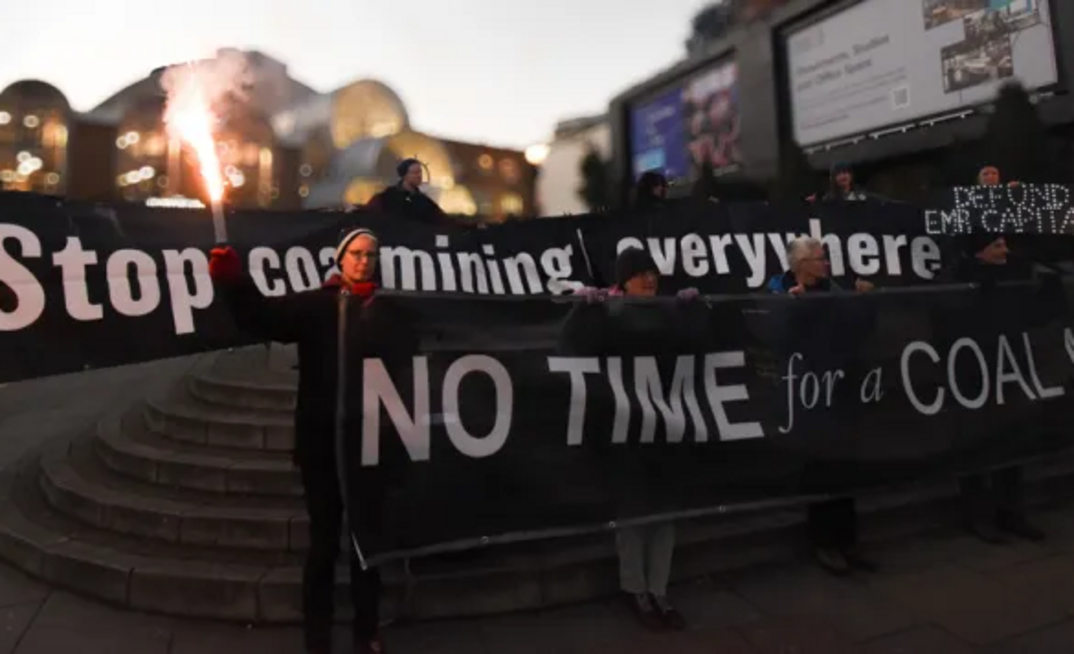In the two weeks since Keir Starmer was sworn in as the UK's Prime Minister, his government has been quick to face backlash.
Among burgeoning issues of contention is the tension between 'not in my backyard' (NIMBY) activists and the predominantly 'yes in my backyard' (YIMBY) sentiments of the new Labour government.
The debate has largely revolved around housing, as the new administration pushes for more urban developments, but another issue is lurking on the sidelines: mining.
Recent years have seen minerals become ever more critical for the UK as the country shifts towards adopting green technologies to meet its ambitious clean goals.
YOU MIGHT ALSO LIKE
Last year, the UK announced its first-ever 'Critical Minerals Strategy', which emphasised global partnerships and domestic mining as ways to maintain control over its mineral supply.
Coupled with growing mineral demand are energy price pressures caused by the war in Ukraine, which have led some to re-evaluate the country's historical NIMBY stance.
In 2022, the previous government, under Secretary of State Michael Gove, approved a new coal mine in Whitehaven, Cumbria - the first in three decades.
Net zero coal
The new West Cumbria mine promises to be a net-zero operation, focusing on coking coal for steel manufacturing.
"West Cumbria Mining (WCM) will operate a world-leading, legally binding emissions mitigation scheme," the company wrote.
"This will utilise an electrical mining fleet, renewable electricity tariff, methane capture and elimination, zero-emission transport schemes and carbon offsetting for residual emissions. WCM's commitment significantly exceeds the UK Climate Change Committee ‘Net Zero Test' for all new projects (including Scope 1,2 & 3 emissions)."
But despite its net-zero claims, the Whitehaven coal mine has faced significant opposition from the local community, led by environmental groups such as Friends of the Earth and South Lakes Action on Climate Change (SLACC).
According to activists, the mine's approval did not fully consider the greenhouse gas emissions from burning coal, focusing only on operational emissions.
Maggie Mason, who leads a local climate group, rallied campaigners outside the High Court in London last week, where the mine's fate is being contested.
"WCM's claim to ‘net-zero' status was and is pure greenwashing," said lawyers representing Friends of the Earth, according to a BBC report.
Divided opinions
On the ground, the project has polarised the local community. Some see the draw of 500 new jobs as a significant value addition to the area, which has a strong industrial heritage.
Former Conservative mayor Mike Starkie supports the mine, viewing it as a much-needed economic investment.
However, newly elected Labour MP for Workington and Whitehaven Josh MacAlister argues that the mine represents a "risky bet on a dying industry" and advocates for jobs aligned with the government's green industrial strategy.
Broader implications
The Whitehaven case is a test of the UK's climate policy, especially after a landmark Supreme Court ruling in June that requires environmental impacts of burning fossil fuels to be considered in planning approvals, including for any mines.
Paul Brown, representing Friends of the Earth, said that the approval of the mine "smacked of hypocrisy and undermined the UK's international reputation."
According to Brown, UK steel manufacturers are transitioning to electric furnaces, reducing the need for coking coal.
On its website, WCM said that its steelmaking coal is intended "as a direct replacement for USA coals."
"It has highly attractive properties for steelmaking, including ultra-low ash and very low Phosphorus. With excellent existing infrastructure, this can be delivered on a ‘just-in-time' basis to Europe, using a variety of vessel sizes up to Cape or by rail to UK steelmakers," the company wrote.
Disputes around Whitehaven point towards a broader tension between the newly identified need for domestic mining and NIMBY concerns, particularly around environmental impacts, that have been growing with time.
It is becoming evident that the promise of net zero is no longer sufficient to secure community support for new extraction projects in the country.
There is a growing demand for local voices to be involved in the permitting process as the country transitions to 'greener' industries and more community-centred planning policies.

























